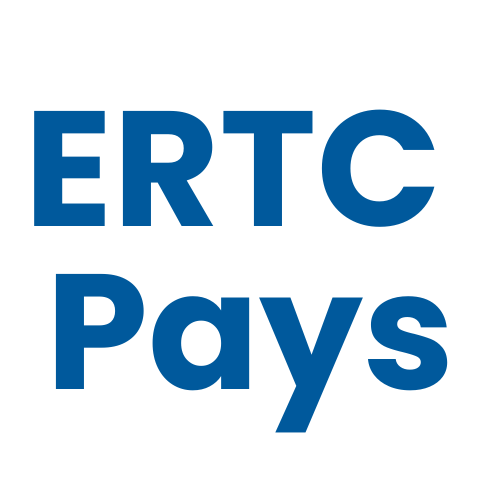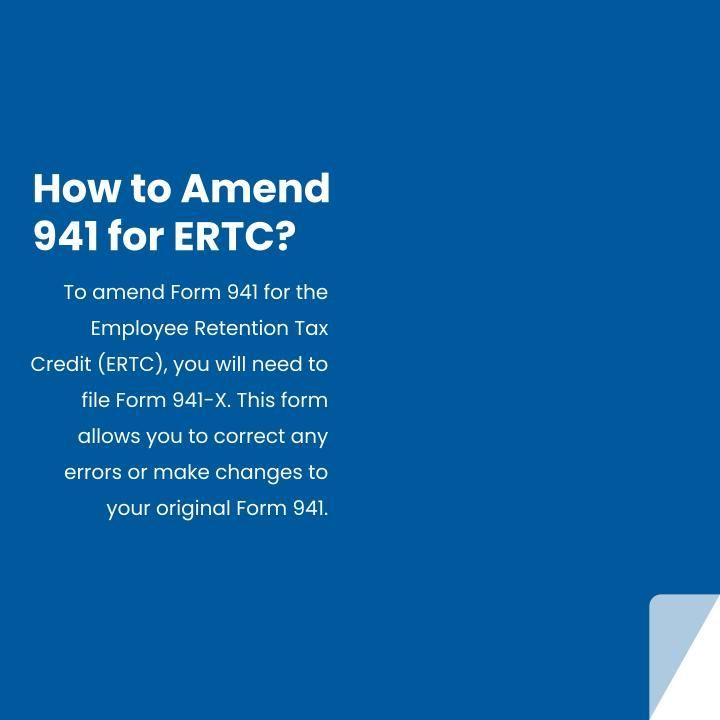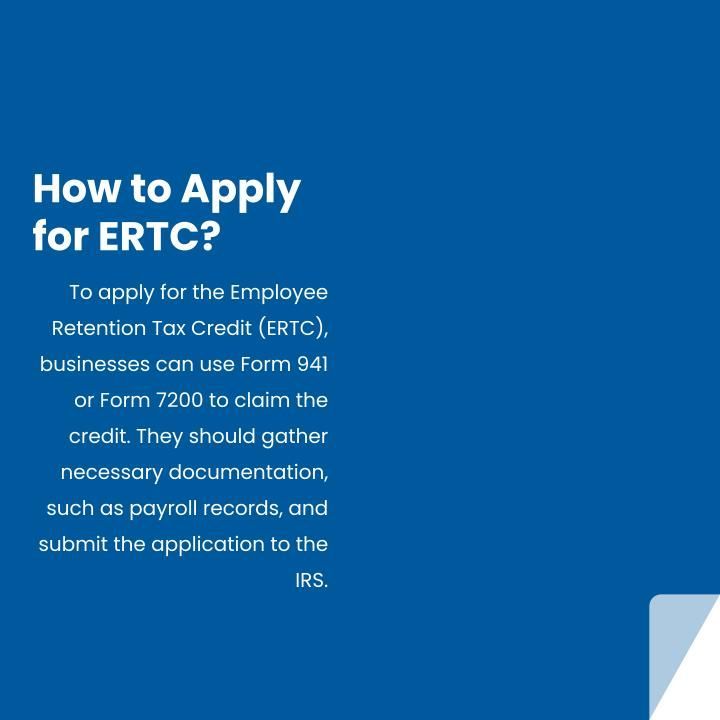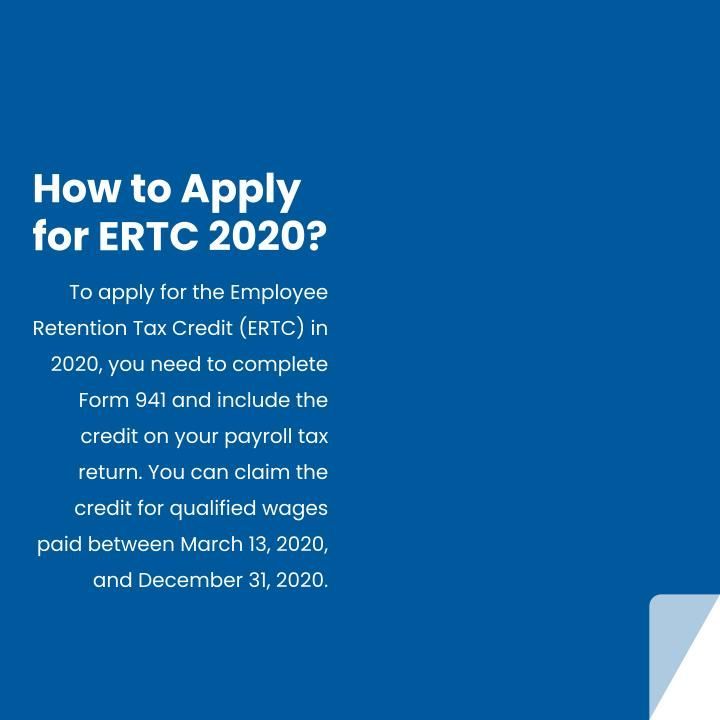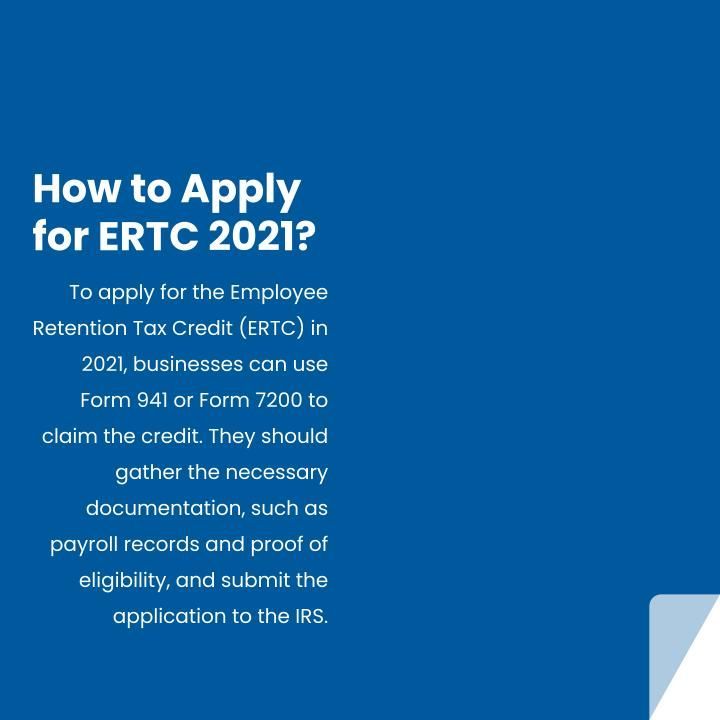Claiming the ERTC, Forms & Documents FAQ
Frequently Asked Questions about Claiming the ERTC, Forms & Documents
Determining your eligibility for the Employee Retention Tax Credit program can be confusing. We've collected the most frequently asked questions regarding the eligibility requirements for the ERTC here.
-
Where Will ERTC Credit Be Deposited?
The Employee Retention Credit will be deposited into the designated bank account provided by the recipient.
Learn More:
-
Where to Report ERTC on 1120S?
The employee retention credit should be recorded on Form 1120-S, line 13g, Schedule K, and Form 5884. This results in a Tax credit on K-1 that may be utilized for 2022 federal return taxes.
Learn More:
-
How to Report ERTC on 1120S?
To report ERTC on Form 1120S, you will need to complete Schedule K-1 and include the relevant information in the appropriate sections. Consult the instructions for Form 1120S for detailed guidance on reporting ERTC.
Learn More:
-
How to Maximize PPP and ERTC?
To maximize PPP (Paycheck Protection Program) and ERTC (Employee Retention Tax Credit), businesses can ensure they meet the eligibility criteria, accurately calculate their payroll costs, and submit the necessary documentation on time. Additionally, businesses can consult with tax professionals or advisors to fully understand and take advantage of these programs.
Learn More:
-
How to Get the ERTC Credit?
To get the ERTC credit, businesses must meet certain eligibility criteria and apply through the IRS. The credit can be claimed on quarterly payroll tax returns.
Learn More:
-
How to Fill Out 941-X for ERTC?
To fill out Form 941-X for ERTC, you will need to provide the necessary information and calculations related to the Employee Retention Tax Credit. Follow the instructions provided by the IRS and ensure accurate reporting of eligible wages and credits.
Learn More:
-
How to File for ERTC?
To file for the Employee Retention Tax Credit (ERTC), you need to complete Form 941 and include it with your quarterly tax return. You can claim the credit for eligible wages paid between March 13, 2020, and December 31, 2021.
Learn More:
-
How to File ERTC 2021?
To file ERTC for 2021, gather the necessary documentation and complete Form 941. Submit the form to the IRS along with any supporting documents.
Learn More:
-
How to File ERTC 2020?
To file the Employee Retention Tax Credit (ERTC) for 2020, you will need to complete Form 941. This form should be filed with the IRS on a quarterly basis.
Learn More:
-
How to Claim the ERTC?
To claim the Employee Retention Tax Credit (ERTC), businesses need to file Form 941 or 7200 with the IRS. They should provide the necessary documentation and follow the guidelines outlined by the IRS to ensure a successful claim.
Learn More:
-
How to Claim ERTC Retroactively?
To claim the Employee Retention Tax Credit (ERTC) retroactively, you need to file an amended payroll tax return for the applicable quarters. Include Form 941-X and provide the necessary information and documentation to support your claim.
Learn More:
-
How to Claim ERTC for 2020?
To claim the Employee Retention Tax Credit (ERTC) for 2020, you need to file Form 941 or 941-SS with the IRS. Make sure to include the necessary information and documentation to support your claim.
Learn More:
-
How to Claim ERTC for 2021?
To claim the Employee Retention Tax Credit (ERTC) for 2021, you need to file Form 941 or 7200 with the IRS. Make sure to provide the necessary documentation and follow the instructions provided by the IRS.
Learn More:
-
How to Claim ERTC Credit?
To claim the Employee Retention Tax Credit (ERTC), you need to file Form 941 or 7200 with the IRS. Make sure to provide all necessary documentation and follow the instructions provided by the IRS.
Learn More:
-
How to Apply for the ERTC?
To apply for the Employee Retention Tax Credit (ERTC), businesses can use Form 941 or Form 7200 to claim the credit. They must provide information about their eligible employees and the qualified wages paid during the applicable time period.
Learn More:
-
How to Apply for ERTC Tax Credit 2022?
To apply for the Employee Retention Tax Credit (ERTC) in 2022, businesses must complete Form 941 and include the credit on their quarterly tax return. They can also claim any missed credits from previous quarters by filing an amended Form 941-X.
Learn More:
-
How to Apply for ERTC Tax Credit 2021?
To apply for the Employee Retention Tax Credit (ERTC) in 2021, businesses can use Form 941 to claim the credit on their quarterly tax return. They should also review the eligibility requirements and consult with a tax professional for assistance with the application process.
Learn More:
-
How to Apply for ERTC Tax Credit?
To apply for the Employee Retention Tax Credit (ERTC), businesses can use Form 941 or Form 7200 to claim the credit. They should gather necessary documentation, such as payroll records and financial statements, and submit the application to the IRS.
Learn More:
-
How to Apply for ERTC Credit After the Fact?
To apply for ERTC credit after the fact, you will need to file an amended employment tax return using Form 941-X. Include the necessary information and documentation to support your claim for the credit.
Learn More:
-
How to Apply for ERTC 2022?
To apply for ERTC 2022, visit the official website and fill out the application form with the required information. Submit the form and wait for a response from the ERTC team regarding your eligibility and next steps.
Learn More:
-
How to Apply for ERTC 2021?
To apply for the Employee Retention Tax Credit (ERTC) in 2021, businesses can use Form 941 or Form 7200 to claim the credit. They should gather the necessary documentation, such as payroll records and proof of eligibility, and submit the application to the IRS.
Learn More:
-
How to Apply for ERTC 2020?
To apply for the Employee Retention Tax Credit (ERTC) in 2020, you need to complete Form 941 and include the credit on your payroll tax return. You can claim the credit for qualified wages paid between March 13, 2020, and December 31, 2020.
Learn More:
-
How to Apply for ERTC?
To apply for the Employee Retention Tax Credit (ERTC), businesses can use Form 941 or Form 7200 to claim the credit. They should gather necessary documentation, such as payroll records, and submit the application to the IRS.
Learn More
-
How to Amend 941 for ERTC?
To amend Form 941 for the Employee Retention Tax Credit (ERTC), you will need to file Form 941-X. This form allows you to correct any errors or make changes to your original Form 941.
Learn More:
Other ERTC Blog Posts and Updates
Free ERTC Eligibility Check with an Advisor
Affiliate Disclosure: Our advisors are from third-party ERTC advisory companies who can help you determine your eligibility and claim the ERTC at no upfront cost to you. They take their fee AFTER the tax credit is deposited and can offer funding if you don't want to wait. ERTCPays.com receive a small referral fee if you choose one of our recommended companies.
